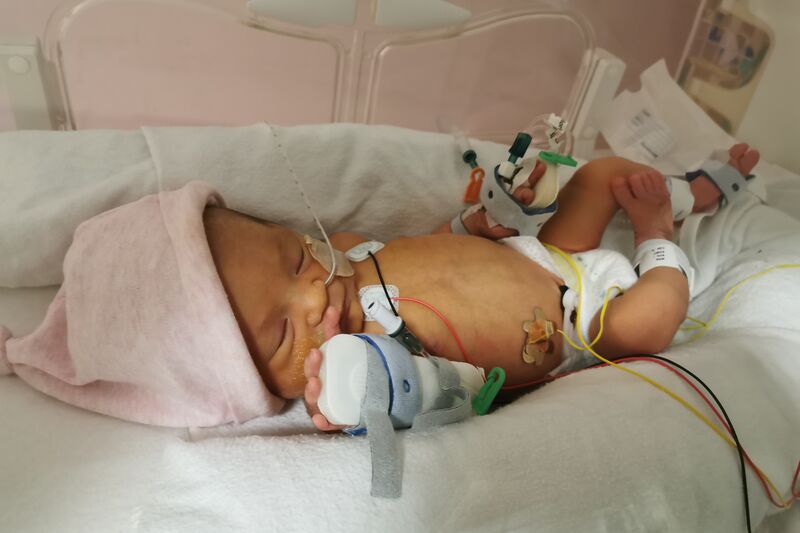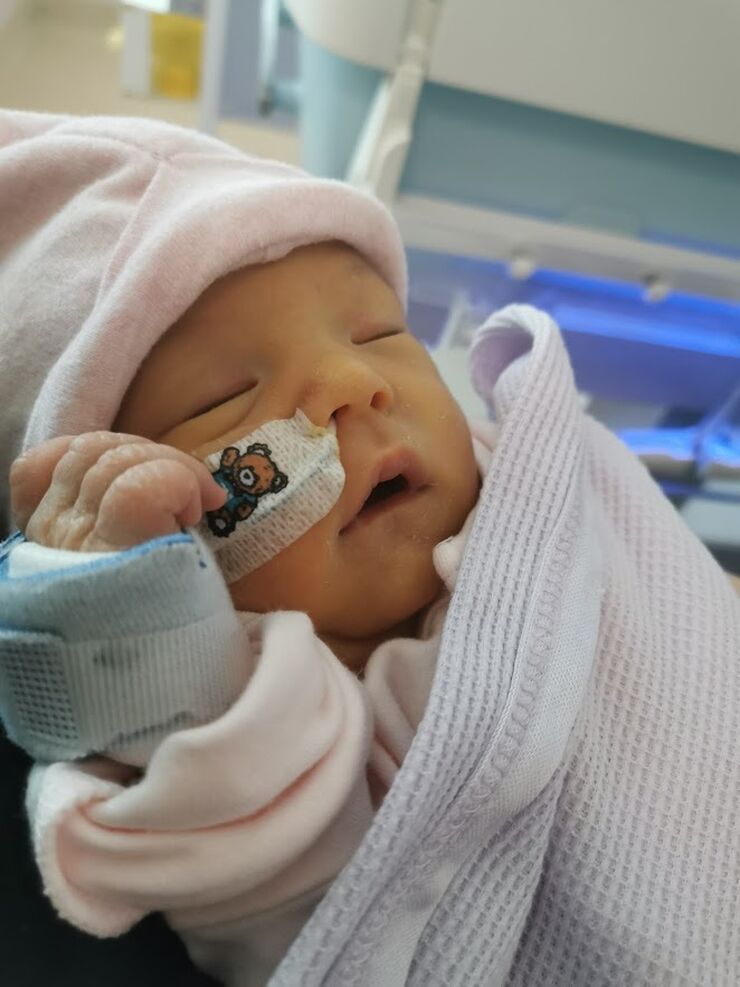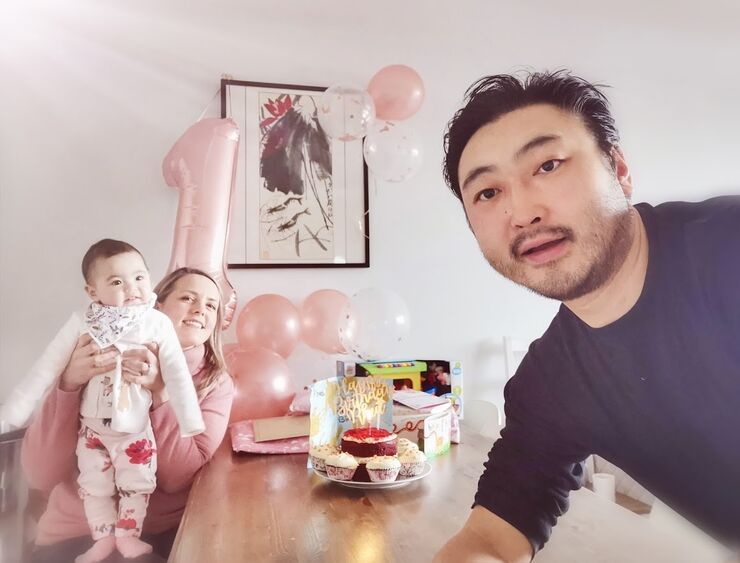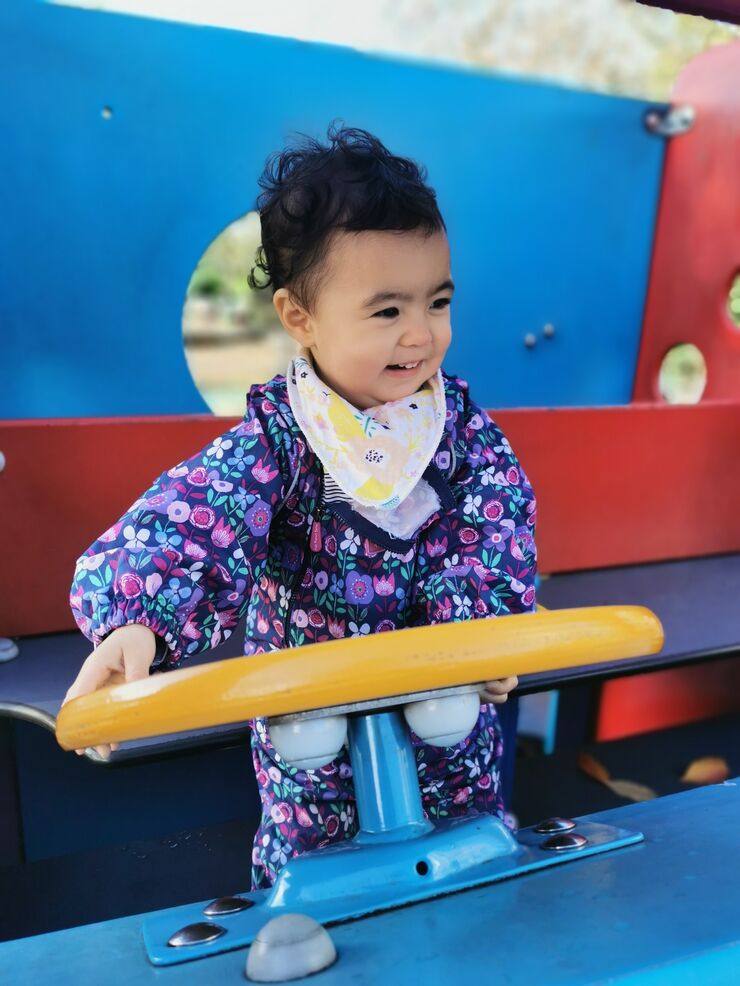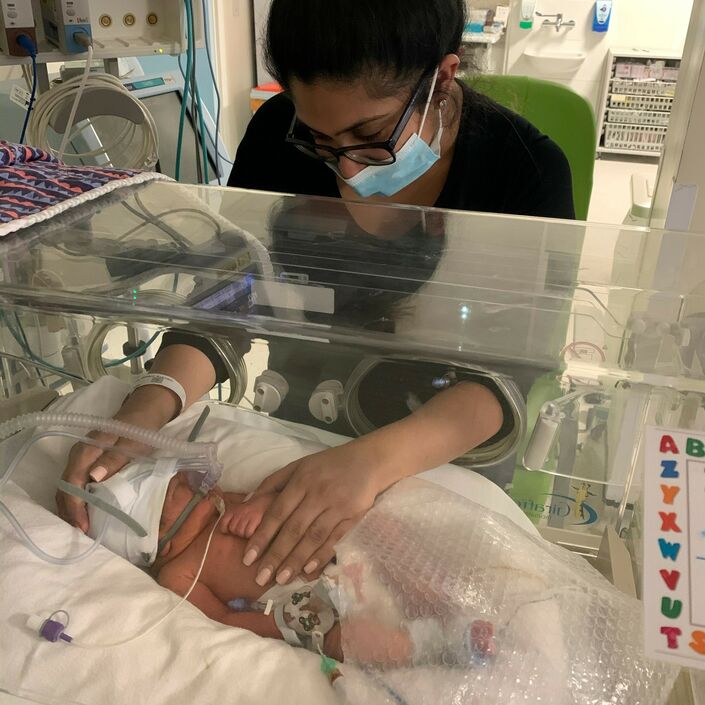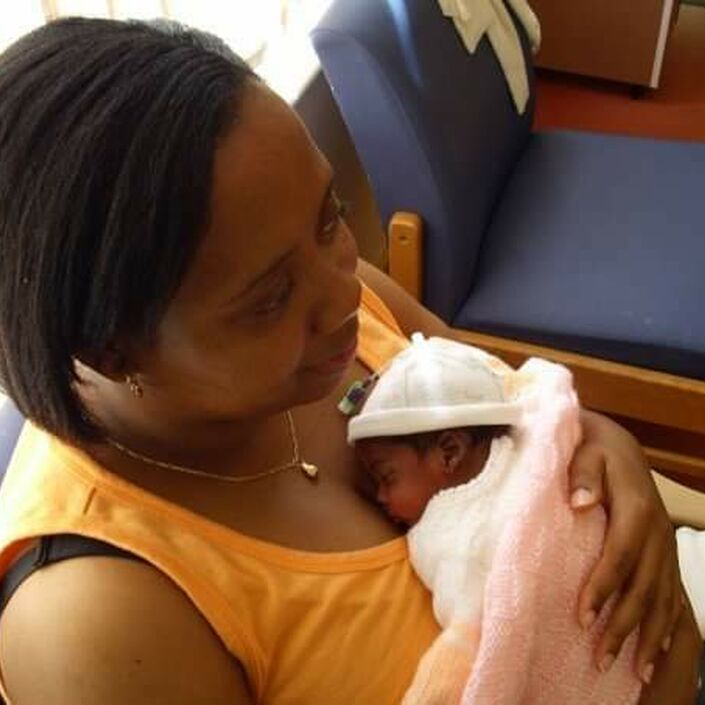After nearly two years of trying, with a bleak fertility prognosis, I had a positive pregnancy test three weeks before we were due to start a first cycle of IVF. We couldn’t believe our luck and treaded anxiously through the months ahead. My pregnancy was relatively smooth, with only some slight concerns towards the end that the baby was on the small side.
Our little girl was breech from 20 weeks and was therefore delivered at 39 weeks and two days by elective section at UCLH in London. Everything was very calm, organised and efficient. She was whisked away for a quick check-up after delivery as she did turn out to be a little small at 5lb 8ozs but was deemed in good shape by the neonatal doctors.
I finally got to hold her once we were back in recovery. The midwives tried to help her latch and seemed confused but not worried when she didn’t. We were then rushed off to the ward, ecstatic and oblivious.
On the maternity ward, our little girl got progressively colder despite lots of skin-to-skin contact. She continued to show no interest in feeding, and I started desperately trying to express colostrum into a syringe to give her directly. A heated cot made no headway to stabilize her temperature. Eventually a neonatal doctor appeared and took a deep breath before telling us our little girl needed to go to the NICU immediately. My blood pressure immediately went through the roof and I was unable to stand. Feeling shell-shocked, dizzy, confused, I waited and waited, counting on texts and photos from my husband as to what was going on.
